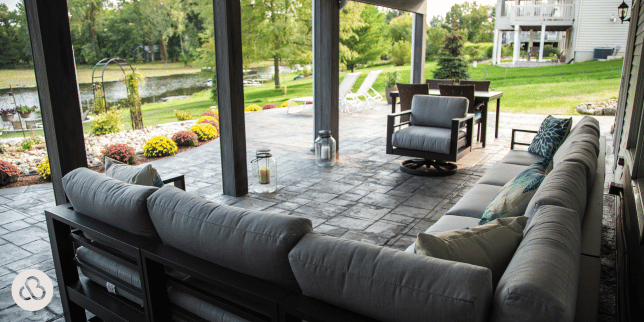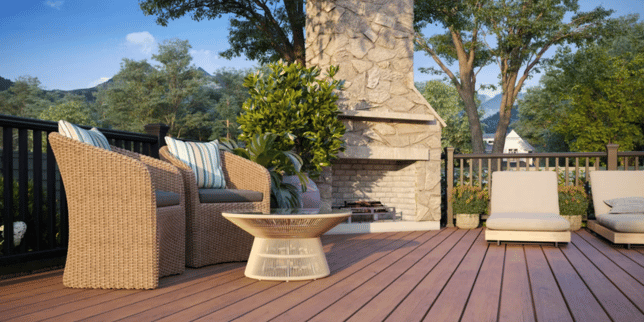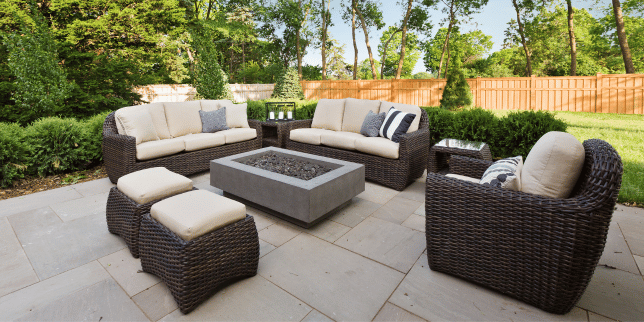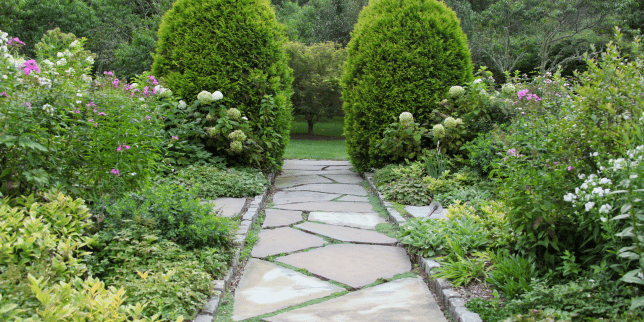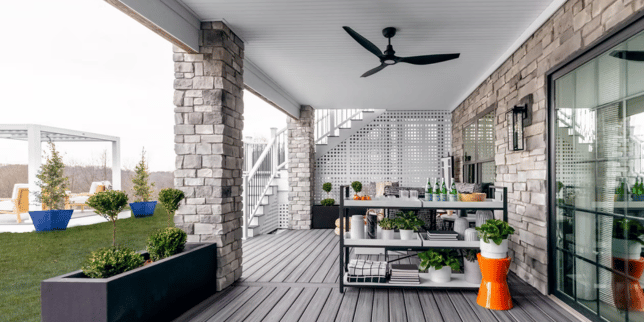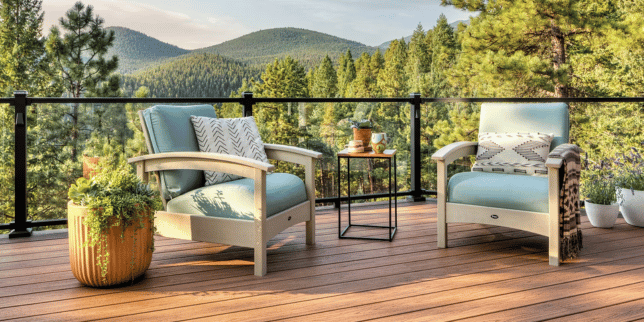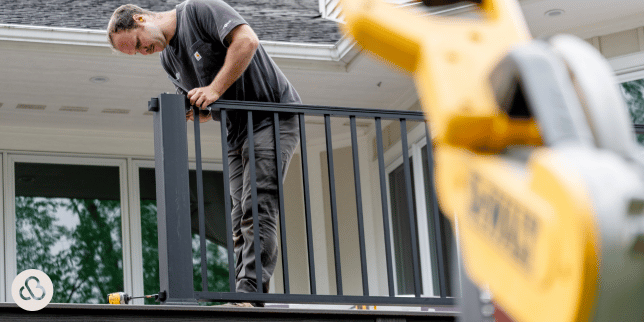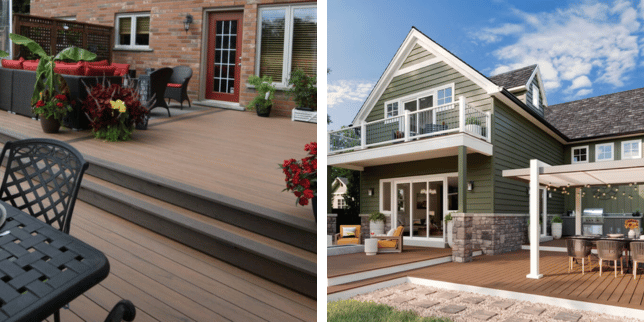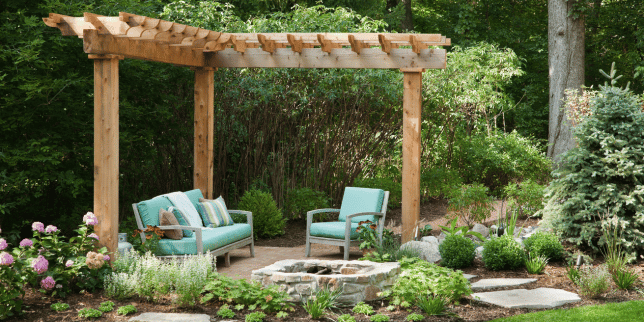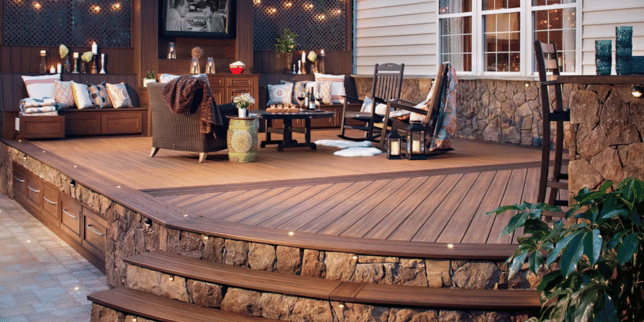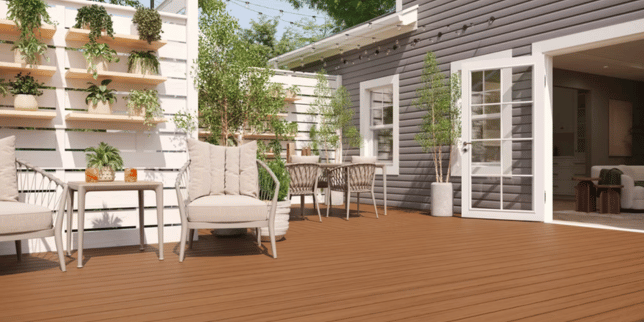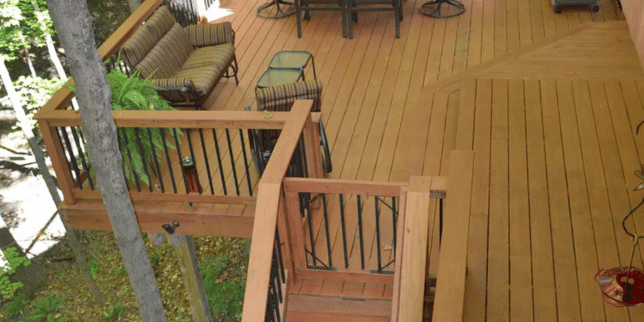The Pros and Cons of Covered Deck Designs
May 16th, 2025
6 min read
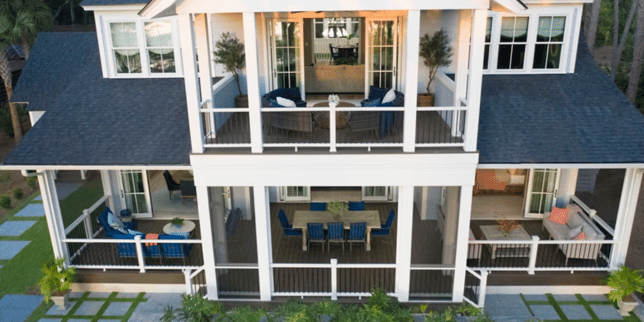
You love spending time on your deck, but in Michigan, the weather doesn’t always cooperate. From surprise summer storms to blazing sun or chilly winds off the lake, an uncovered deck can leave you stuck inside when you’d rather be relaxing, entertaining, or grilling under the sky.
At Custom Built Design & Remodeling, we understand the value of creating outdoor spaces that work for your lifestyle, rain or shine. With decades of experience designing covered decks throughout Mid-Michigan, we help homeowners extend the comfort and function of their homes with beautiful, code-compliant structures built to last.
In this article, we’ll break down the pros and cons of covered deck designs—so you can decide if this investment is the right fit for your home, your goals, and the way you want to enjoy the outdoors:
The Pros of Covered Deck Designs
1. Weather Protection All Year Long
PC: Enclosure Guy
One of the biggest advantages of a covered deck is protection from Michigan’s ever-changing weather. A roof, whether it’s asphalt shingles or standing seam metal, helps block sun, rain, and snow. This allows you to use the space more often, whether it's a hot summer afternoon or a drizzly fall evening.
Canvas roofs and pergolas also offer partial shade and rain protection. While those might not require a permit, more permanent structures usually do - that can even help protect your home warranty when done properly.
2. Furniture and Outdoor Décor Last Longer
Covering your deck helps preserve your outdoor furniture, rugs, and accessories. Without direct sun and moisture exposure, fabrics fade more slowly, cushions dry faster, and metal pieces avoid rusting. It also helps keep leaves and bird droppings off your seating area, making clean-up easier.
Pro Tip: Covered decks can become a favorite spot for birds or bugs to nest, especially spiders. It’s a good idea to regularly check and clean around beams and furniture.
3. Comfort Features Add Daily Value
Covered decks open the door for more upgrades that make your space feel like a true extension of your home. You can add recessed lighting, ceiling fans, exterior-rated TVs, and built-in speakers.
Some homeowners even take it a step further and install outdoor kitchens - just be sure to consider proper ventilation. Gas appliances may require a hood, and open-flame grills need thoughtful placement to avoid staining or damaging your ceiling.
4. Boosted Home Value
Covered decks often increase the value of your home. Not only do they extend your usable living space, but they also offer more function year-round.
Whether you’re entertaining guests, sipping your morning coffee, or spending time with your kids, a covered deck creates new opportunities to enjoy the outdoors without worrying about the weather.
5. Better Functionality from Indoors to Outdoors
PC: Martha Stewart
In Michigan, most back doors are sliding, not swinging, because of snow. But if you have a covered deck, the roof blocks most snowfall, giving you the option for different door styles and making it easier to open and close doors in winter.
Plus, with the roof in place, the area near your entry stays drier and safer.
6. Protection from Michigan’s Tree Debris and Pollen
PC: TimberTech
If your home is surrounded by mature trees, as many are across Michigan, you know how messy decks can get in spring and fall. From cottonwood fluff to oak leaves and pine needles, uncovered decks require constant cleaning.
A covered design helps protect your outdoor space from daily debris, pollen buildup, and even sticky sap, so you spend more time relaxing and less time sweeping. Additionally, a covered deck can help reduce the amount of allergens you’re exposed to, making it a more comfortable space for those sensitive to seasonal pollen.
You’ll also spend less time repairing or replacing outdoor furniture, which can wear down quickly under layers of debris and moisture.
The Cons of Covered Deck Designs
1. Higher Upfront Cost
Building a covered deck is a larger investment than an open one. You’re not just adding posts and flooring - you’re building an entire roof system that ties into your home’s existing structure.
That means pouring concrete footings, matching shingles or metal, and working around your siding and roof. The added materials, labor, and equipment increase the cost compared to uncovered decks.
2. Reduced Natural Light
Depending on how far the roof extends from your house, you may lose some natural light indoors. The covered structure can block sunlight from reaching interior rooms, especially if your deck faces south or west.
Some homeowners paint their deck floor white (if using wood) to help reflect more light back inside, but this may not be an option with composite materials.
3. Ongoing Maintenance
PC: The Home Depot
Like your home’s roof, your covered deck will need maintenance. After strong storms, it’s important to check for hail damage, leaks, and gutter issues. You’ll also want to keep an eye out for bird nests and pests.
Depending on your post material, you may need to stain or repaint every few years to maintain its look and durability.
4. Design and Structural Limitations
Covered decks must be carefully designed to avoid disrupting your home’s systems. Roof vents, windows, electrical panels, and gas meters can’t be blocked or covered, so we work around them or find alternatives.
In some cases, tying the new roof into the existing one just isn’t feasible due to slope, material, or layout. Homeowners living in HOA neighborhoods should also check for restrictions on roof height, style, and placement before building.
5. Permit and Code Requirements
Covered decks are more than just a weekend project - they require proper permits and must meet local building codes. Ventilation, structural integrity, and safety are top priorities, and not all contractors are experienced in this type of build.
That’s why it’s important to choose a remodeler who understands how to work with these codes and knows how to handle tie-ins to the existing home.
6. Waterproofing Issues
Covered decks in Michigan offer great protection, but without proper waterproofing, water can seep through gaps or joints, leading to damage from moisture, mold, and rot. Given the heavy rain and snow here, it's crucial to choose weather-resistant materials for the roof and ensure proper sealing beneath the deck.
Installing drainage systems, like gutters or channels, can help direct water away from the deck and foundation, preventing long-term damage. While waterproofing requires some maintenance, taking the time to properly seal and manage water flow will protect your deck and extend its life for years to come.
Is a Covered Deck Right for You?
A covered deck isn’t just about adding a roof—it’s about how you plan to use your outdoor space and how well that addition fits into your lifestyle and home design.
Start by asking yourself a few key questions:
1. Do you want to spend more time outdoors, even in bad weather?
If you’re the kind of person who enjoys morning coffee outside, hosting summer get-togethers, or relaxing after dinner - even when it’s raining or sweltering - a covered deck can give you the flexibility to enjoy your space without checking the forecast first.
2. Do you want to protect your investment in outdoor furniture and décor?
If you’ve spent time and money creating a cozy and stylish outdoor setup, a covered structure will help it last longer. From UV protection to shielding your cushions from pop-up showers, covering your deck helps preserve the space you’ve created.
3. Are you planning to add electrical upgrades or outdoor kitchen features?
Recessed lights, ceiling fans, mounted TVs, and outdoor kitchens all benefit from some kind of overhead protection. A covered deck allows you to enjoy those upgrades with less concern for weather damage. Just keep in mind that the more features you add, the more codes and ventilation rules will come into play.
4. Is your current door to the backyard hard to use in winter?
If snow and ice block your patio door every year, a covered deck can help. Blocking snowfall near your door keeps the area clear and safer for kids, pets, and guests. It also opens up the option to install a swing-out door, which is usually avoided in Michigan homes without overhead protection.
5. Are you okay with less natural light in the adjoining room?
Depending on the deck’s direction and roof size, you may lose some light inside your home. For many families, the trade-off is worth it—but it’s something to consider if natural light is a high priority in your kitchen or living room.
6. Are you prepared for a higher upfront investment and occasional maintenance?
Covered decks require more labor, materials, and permitting than an open structure. While they offer long-term value and function, they also come with higher initial costs and maintenance needs like gutter cleaning, pest checks, and the occasional roof inspection after storms.
7. Do you live in a neighborhood with HOA restrictions or home design limitations?
Not every home is built to support a covered deck. Your roof slope, window layout, and vent placement may impact whether a roof can be added at all. Plus, HOA rules might limit what you can build in your backyard. A design-build team like ours can help you navigate those obstacles and explore other options if needed.
Next Steps to Building or Remodeling Your Covered Deck
Covered decks bring comfort, extended use, and added home value - but also involve higher costs, maintenance, and code requirements.
Knowing the pros and cons helps you decide if it’s the right fit for your home and lifestyle.
Custom Built has helped Mid-Michigan families design functional, beautiful covered decks that last. Ready to explore your options? Schedule a Discovery Call with our team today.
Now that you know more about the pros and cons of covered deck designs, let’s explore how much lighting and composite decks cost and Trex’s high-quality composite lines:
- How Much Does Deck Lighting Cost in Michigan? - Discover how much Trex and other deck lighting options cost and what affects the estimate.
- How Much Do Composite Decks Cost in Lansing, Michigan? - An overview of how much your Lansing composite deck will cost and the factors that will influence your price.
- Comparing Trex Lineage, Transcend, Select, and Enhance Composite Decking Lines - Explore our thorough comparison of Trex’s most common composite decking options, including cost, colors, and benefits.
Christine is the Lead Designer at Custom Built, bringing over 10 years of experience in custom homes, full interior remodels, and landscape design from design-build firms in Oregon and Michigan. A University of Michigan Taubman College graduate, she develops initial concepts, floor plans, curated selections, and detailed construction documents, turning clients’ visions into expertly crafted realities while staying aligned with Custom Built’s mission to positively impact the community.















